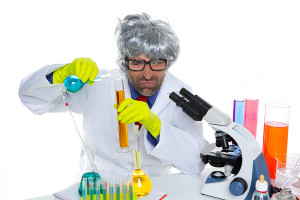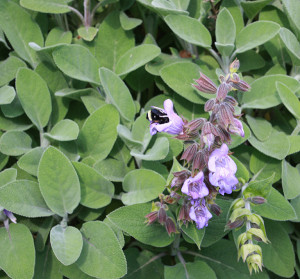Are essential oils safe natural healing from plants? Or, are essential oils dangerous medicine?
The short answer is Yes and No.
If you are new to aromatherapy, perhaps you saw confusing articles and posts about essential oils safety concerns. Some negative articles show the egos, politics, and conflicts between factions and personalities.
Many people fear misusing these aromatherapy products because of everything they read.
Some of us just enjoy the uplifting aroma and want to use essential oils safely. But today people also fear side effects of toxic pharmaceutical drugs.
The U.S. Food & Drug Administration reports more than 2,216,000 serious ADRs [adverse drug reactions] in hospitalized patients.
Over 106,000 annual deaths make properly prescribed pharmaceutical drugs the 4th leading cause of death in the U.S. Plus ADRs outside of hospitals, and annual estimated 350,000 ADRs occurring in U.S. nursing homes…
You can understand why people are seeking safer traditional remedies.
EOs – Distill the Essence of Healing Plants
Aromatic plants have been used in healing throughout recorded history. Later, people learned how to distill the essence of these healing plants into the most concentrated form possible.
Essential oils contain hundreds of compounds that affect our body, mind and spirit in many ways, usually positive. However, EOs are concentrated and powerful. Less is more!
Safe essential oil use means using caution in quantity and method applied. Avoid the old idea that “if a little is good, more must be better.”
In fact, some essential oils contain toxins and irritants. A few are quite dangerous.
Controversy Of Essential Oil Safety
We were bound to start fighting over ideologies once the internet became a virtual meeting ground where people could conveniently connect. But manners are even worse on the internet – people don’t have to look each other in the eye.
By creating the controversy of essential oil safety, factions have a soap box. Controversy draws comments. Comments bring ratings on the search engines. Controversy makes some people feel relevant. Taking a position and defending your position feels important.
Debunkers
We have the skeptical debunkers that go after anything that doesn’t fit their narrow view of science and scientific proof.
These scare mongers consider hundreds or thousands of years of detailed medicinal uses as “pseudo-science.” If modern scientific studies have not yet isolated compounds and conducted large double-blind studies to prove why the natural product works, they assume it doesn’t.
In other words, it cannot possibly be true unless their version of science has proved it’s true. The essential oil debunking stirs up pages of pro and con responses, which benefits the debunker’s website ratings.
You won’t get any objectivity on these sites. Just stay away!
Essential Oil Safety Neighborhood Watch
Then we have the self-appointed “Essential Oil Safety Neighborhood Watch” – aromatherapists who discredit those who don’t follow their protocol.
This is actually a good thing, even if they are a little narrow minded or zealous. A lot of information comes out. The essential oil vendors know someone is watching them. That can only improve essential oil safety and quality.
But is the super-cautious self-appointed “EO Safety Neighborhood Watch” always right?
Will you turn into dayglo colors and implode from tapping a drop of peppermint EO onto your tongue, adding a few drops of lemon EO into your water, or rubbing undiluted tea tree oil onto your skin?
Maybe. Rarely … if you’re allergic. Or have some unusual sensitivity to essential oils. Or take too much. Or use a toxic oil.
But probably not.
People show different levels of sensitivity. Many of us can put some of the essential oils directly on our skin, undiluted, with no irritation. Some people ingest essential oils without negative side effects. I’ve done it myself, back in the day when we didn’t really think about how powerful they are.
But SHOULD you?
In my opinion – NO – unless directed by a doctor or experienced professional aromatherapist who knows you and knows how to treat your condition. And then only for good reason.
MLMs and Affiliates
People with something to sell may tell the truth, the whole truth and nothing but the truth … but their bias will be to make a sale. The educated and honorable make the sale with truthful and solid information. Charlatans are fairly easy to spot.
Enthusiastic Sales Reps
The problem comes from enthusiastic sales reps with minimal education and training.
MLM aromatherapy companies are growing. Training at these companies filters down from the top until it’s more diluted than a 1% EO solution. I recognize this pattern from back in the day when Young Living was about the only game in town and the internet was in its infancy.
Though never a YL member, I loved their oils and a friend let me order through her account to take pressure off her monthly autoship expense. Her information came from way up the line.
Her advice was to use Peppermint like a breath freshener but don’t ingest the other oils. She warned me about lemon oil and the sun, but it was ok to use the others directly on my skin.
One day I accidentally tapped about 10 drops of something else instead of peppermint. Freaking out, I called my friend. She laughed and said “don’t worry, it won’t hurt you, it’s perfectly safe.”
She was right. I was fine. No harm done.
But it COULD have been. She didn’t know much about essential oils. Yet, she was dispensing advice trickled down the line from those at the top who probably were trained better.
MLM Cult-Wars
Almost cult-like, MLM distributors are at each others’ throats on Facebook, blogs and other forums. They continue to make claims based on trickled-down information. MLM wars are one source of conflict and controversy. Sadly, it gets pretty ugly fighting over healing essences that should bring beauty to the world.
The moral of the story:
- Do your own essential oil safety research,
- Follow the money, and
- Don’t believe everything you read.
Powerful Aromatic Essences
These magical aromatic essences are powerful.
Breathe in a few drops. Mix essential oils in a 1% to 5% dilution with carrier oil to apply to skin or add to your bath. In most cases that is plenty to support your mind, body and spirit.
More wastes your money and you run the chance of sensitization or irritation.
Why waste your expensive oils or take a chance?
But Essential Oils Are Safe And Natural!
“Natural” is a marketing term. Please, please don’t get swept up in the “natural” hype. It only fuels the debunkers and self-appointed EO Neighborhood Watchers.
Most essential oils are safe and natural to a degree, but just because they come from a plant does not make them safe in every instance.
Some plants are naturally toxic, even deadly.
Essential oils from certain plants (such as Mugwort, Wormwood or Sassafras just to name a few of many) are so toxic you should not have them in your home. Others have potentially sensitizing or dangerous properties and should be used only by trained aromatherapists. Of course, not everyone agrees, but lists often include Wintergreen, Sage and Birch among many others.
Just because essential oils come from plants does not make them fully natural, in the truest sense of the word. Plants are highly processed to express or distill down to their most concentrated essence. EOs are not a natural, undivided form of the plant.
Pluck a few peppermint or sage leaves from the garden, for example. Mix with boiling water in a mug. Now you have a truly natural and safe cup of herb tea.
Adding a few drops of peppermint or sage essential oil to hot water is equivalent to drinking gallons of that same herb tea in one sitting, but without the synergies of the rest of the plant.
Remember – even water is natural and vital for your health. But drinking too much water has killed people!
Basic Safety Guidelines For Aromatherapy And Essential Oils
To wrap up, first please know the comments in this article are based on my own experience, research and opinion. You will read other opinions, and I encourage you to research and arrive at your own.
Use common sense and remember these basic safety guidelines for aromatherapy using essential oils:
- Children and pets are curious. Take care to keep all essential oils from the reach of children and pets (and adults with cognitive impairment), who might apply or ingest dangerous amounts.
- Keep essential oils away from open flame. EOs are volatile (evaporate quickly) and highly flammable.
- Dilute essential oils in a carrier oil base before applying to the skin. In some cases, most people can tolerate lavender and tea tree oil applied “neat,” but it’s best to dilute those as well. If you get an oil in the eye or it irritates the skin, quickly apply a carrier oil or milk to dilute the oil. Do not rinse the eyes with water – essential oils are not water soluble.
- Consult your doctor before using essential oils if you are pregnant, taking medication or have a serious medical condition. Learn which EOs are contraindicated.
- All citrus oils are photosensitive. Avoid direct sunlight for 12 hours after applying any citrus EO to the skin.
- Do not ingest (drink or eat) essential oils except under supervision of a professional Aromatherapist.
- Use only 100% pure (organic when possible) essential oils. Purchase organic, cold-pressed carrier oils. Research vendors and choose from reputable companies who can provide the source information. Ideally, upon request companies will provide Gas Chromatography reports on the chemical constituents of the oil by batch. Some of the reputable smaller companies are not able to do this, however.
Specific Topics On Essential Oil Safety
Future articles (shorter, I promise!) will address specific topics on essential oil safety issues, including:
Are essential oils safe during pregnancy?
Are essential oils safe for children?
Are essential oils safe for pets?
Which essential oils are dangerous?


